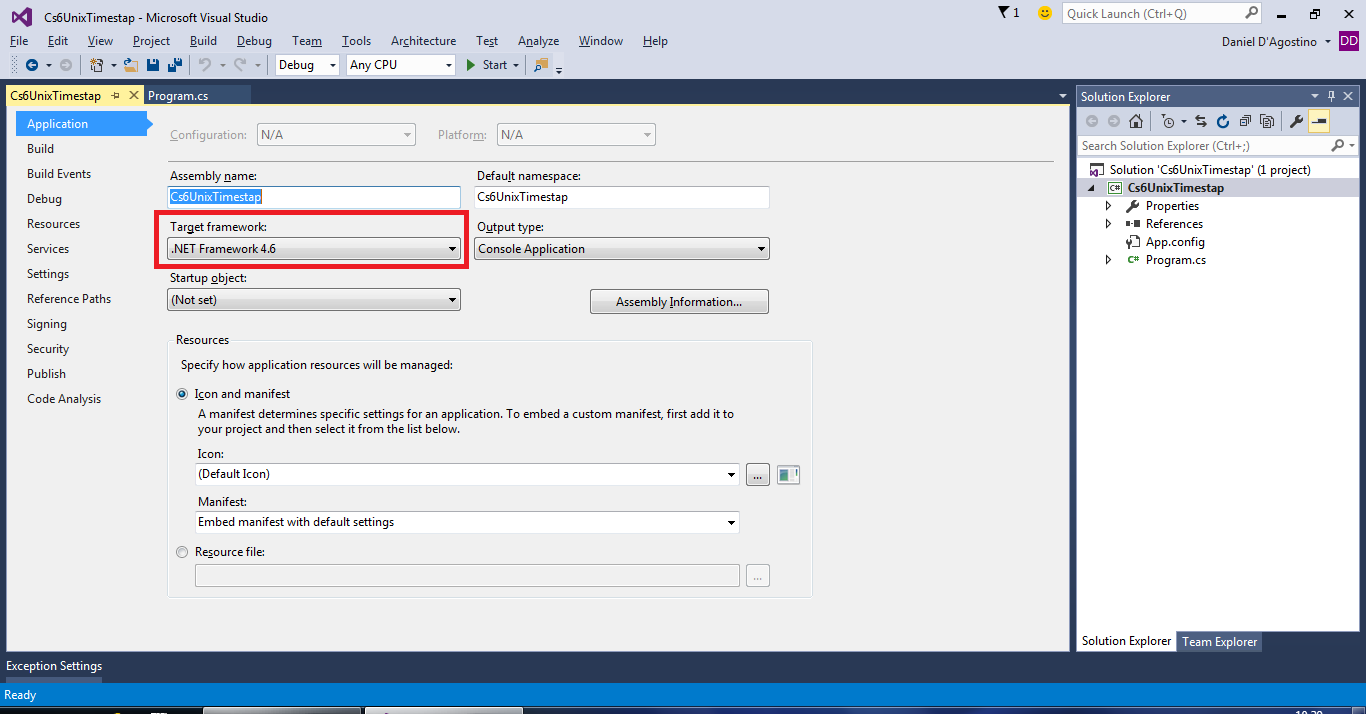Converting to/from Unix Timestamp in C#
Join the DZone community and get the full member experience.
Join For Freea few days ago, visual studio 2015 rc was released. among the many updates to .net framework 4.6 with this release, we now have some new utility methods allowing conversion to/from unix timestamps.
although these were added primarily
to enable more cross-platform support in .net core framework
, unix timestamps are also sometimes useful in a windows environment. for instance, unix timestamps are often used to facilitate redis sorted sets where the score is a datetime (since the score can only be a
double
).
unix timestamp conversion before .net 4.6
until now, you had to implement conversions to/from unix time yourself. that actually isn’t hard to do. by definition , unix time is the number of seconds since 1st january 1970, 00:00:00 utc. thus we can convert from a local datetime to unix time as follows:
var datetime = new datetime(2015, 05, 24, 10, 2, 0, datetimekind.local);
var epoch = new datetime(1970, 1, 1, 0, 0, 0, datetimekind.utc);
var unixdatetime = (datetime.touniversaltime() - epoch).totalseconds;
we can convert back to a local datetime as follows:
var timespan = timespan.fromseconds(unixdatetime);
var localdatetime = new datetime(timespan.ticks).tolocaltime();
unix timestamp conversion in .net 4.6
quoting the visual studio 2015 rc release notes :
new methods have been added to support converting datetime to or from unix time. the following apis have been added to datetimeoffset:
- static datetimeoffset fromunixtimeseconds(long seconds)
- static datetimeoffset fromunixtimemilliseconds(long milliseconds)
- long tounixtimeseconds()
- long tounixtimemilliseconds()
so .net 4.6 gives us some new methods, but to use them, you’ll first have to convert from datetime to datetimeoffset. first, make sure you’re targeting the right version of the .net framework:
you can then use the new methods:
var datetime = new datetime(2015, 05, 24, 10, 2, 0, datetimekind.local);
var datetimeoffset = new datetimeoffset(datetime);
var unixdatetime = datetimeoffset.tounixtimeseconds();
…and to change back…
var localdatetimeoffset = datetimeoffset.fromunixtimeseconds(unixdatetime)
.datetime.tolocaltime();Published at DZone with permission of Daniel D'agostino, DZone MVB. See the original article here.
Opinions expressed by DZone contributors are their own.


Comments